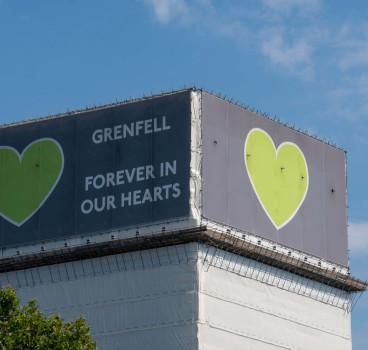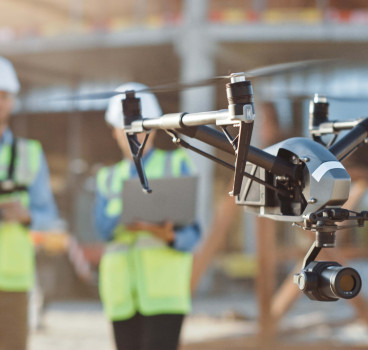Making fire safety a selling point for hotels
Hotel fires continue to be a pressing concern with incidents across the world a painful reminder of the vulnerability of guests and the importance of reliable fire protection. From a fatal and tragic fire at a ski resort in Turkey to a hotel fire in London earlier this year, the risks are clear. An initiative from South Korea offers a fresh perspective that could reshape how regulators and guests view fire safety in hotels.
Terrifying wake-up call Many of us will have read the reports about British holidaymakers Cherie and Sean James. The couple from Wales were staying in a five-star hotel in Marmaris Turkey when they were woken in the middle of the night by fellow guests shouting ‘fire’. No fire alarms sounded and they reported that there were no sprinklers. Thick black smoke enveloped their room. Having no way to escape the blaze, they were forced to shelter on their fifth-floor balcony for three hours before they were eventually rescued. Mrs James said: "You go on holiday to have a fantastic time, not to think about things like fire safety, which I took for granted – you just presume that’s all been taken care of, but it’s not always the case.”
The couple were refunded for their holiday by their travel operator Tui. Interestingly in their Before You Go - Health and Safety Guidance it stated that “Hoteliers and suppliers should meet local and national safety standards, …. only a minority of hotels and apartments meet European Commission recommendations on fire safety.”
An element that struck me from the response to this fire was the mention of “no sprinklers”. If you have travelled in the UK and stayed in hotels, you would not find them in many hotels here either. It maybe something specific to requirements in Turkey for such systems. After the ski resort fire in Turkey, which claimed 78 lives, a
key element that was noted was that the property should have had sprinklers installed. However, this was not picked up on prior audits of the facility.
It reminded me that earlier this year we had participated at an event on hotels and hotel fire safety. The point being that fire safety and systems are assumed to be in place. We are all told to check fire safety information in hotels when we get to our rooms but take for granted that systems are in place. Imagine that if you checked into a hotel it was required to have a fire safety rating prominently displayed in reception or indeed on those often-publicised hotel booking websites?
Too far-fetched? South Korean authorities are exploring tax incentives and reduced fire insurance premiums to motivate hotel operators to voluntarily install sprinklers. Equally, they are working towards a system where hotel users can directly check whether a property has sprinklers installed, either online at the time of booking, or on-site upon arrival.
It follows an investigation into a fatal hotel fire in Bucheon, South Korea, the National Fire Agency introduced a suite of measures spanning prevention, preparedness and response. Between August and November 2024, fire safety surveys and self-inspection sample surveys were completed across 5,373 accommodation facilities. One of the most notable initiatives was a proposal designed to not only encourage hotels to install sprinklers but to make that information visible to the people who matter the most - the guests.
This modest step of making fire safety visible has major implications. In most countries, guests have little way of knowing whether their hotel has the required safety systems or sprinklers. A sprinkler system can keep a fire contained to a limited area, significantly reducing the time it takes for fire services to respond and minimise the overall damage. While a hotel may promote its spa, restaurant or even its Wifi speed, how many highlight fire safety systems? For families booking a holiday or business travellers arriving late at night, this is the kind of reassurance that should sit at the top of the list.
The South Korean approach recognises that fire safety is not just about enforcement, but about culture and choice. If guests begin to demand fire safety
information or sprinklered accommodation, the hospitality industry will push hotels to invest. Similarly, when government incentives align with guest expectations, the change can be swift and far-reaching.
A model for the UK? That same principle could be transformative here in the UK. Despite several tragic hotel fires in recent years, sprinklers are not yet a consistent requirement. Older and historic properties in particular often operate without this level of protection. The challenge remains: how do guests know whether they are staying in a building equipped to keep them safe?
Learning from Korea, the answer may be twofold: incentivise installation and make the information transparent. If hotel search engines and booking platforms were required to include sprinkler status alongside star ratings and amenities, guests could make informed choices. For operators, this would shift sprinklers from a regulatory burden to a visible selling point.
As the Korean example shows, it often takes a tragedy to prompt meaningful reform. But each incident is also an opportunity to rethink how we protect people in buildings that are designed for rest and relaxation. Hotels are places where guests are at their most vulnerable. They are asleep, unfamiliar with the layout, and dependent on management for safety.
Sprinklers offer proven protection. Incentives and transparency may offer the key to getting them installed more widely. If Korea can take steps to ensure every guest can answer a simple but vital question; does this hotel have sprinklers? Then surely in the UK, we can do the same.
For more information about the Business Sprinkler Alliance visit www.business-sprinkler-alliance.org
Additional Blogs

Do BREEAM and LEED really make buildings better?
Walk into the reception of any new office block and you’ll usually see it, framed proudly behind the desk - a certificate, stating BREEAM Excellent or LEED Gold - sometimes Platinum, if the developer...
Read moreSeven years on and is cladding reform delivering real safety?
Nearly seven years on, Grenfell is no longer front-page news and is no longer the subject of nightly bulletins or urgent parliamentary soundbites. But it remains the defining event of modern building...
Read more

Drones in Construction: Are UAVs the Future of Site Inspections?
Technology integration is necessary for construction companies to survive in this evolving industry. Unmanned aerial vehicles or UAVs, such as drones, are poised to be the next big thing in site...
Read more